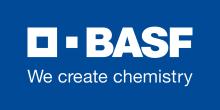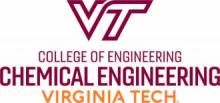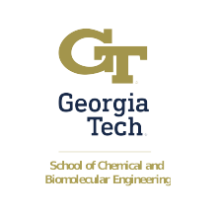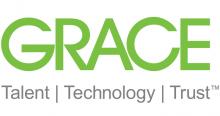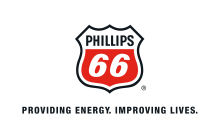NAM29 Sunday Workshops
Preview the Workshop topics below!
AI for Accelerating Catalysis Research
Instructors: John Kitchin (CMU), Hongliang Xin (Virginia Tech), Aditya Nandy (UCLA)
Description: Artificial intelligence (AI) and machine learning (ML) are playing increasingly important roles in catalysis today ranging from physics informed or theory infused machine learned models of catalytic phenomena that are explainable to machine learned potentials for molecular simulation that are purely data-driven models. This workshop will cover a spectrum of these approaches. There will be three modules that include using theory infused machine learning to build models of catalysts and make predictions, the use of Open Catalyst Project potentials to simulate heterogeneous catalyst surfaces, and approaches to modeling molecular catalysts.
About the instructors: Aditya Nandy is a Schmidt AI in Science Fellow at U Chicago, and incoming assistant professor of chemical engineering at UCLA. His interests include discovery of molecular catalysts using ML. Hongliang Xin is a professor of chemical engineering at Virginia Tech with expertise in explainable AI for advancing catalysis knowledge and catalytic materials discovery. John Kitchin is a professor of chemical engineering at Carnegie Mellon University working in the Open Catalyst Project developing machine learned potentials for heterogeneous catalysis.
Some Simple Preparations and Characterizations of Supported Metal Catalysts
Instructors: JR Regalbuto (U. South Carolina) and Stu Soled (ExxonMobil Corporation)
Description: This workshop will cover several methods to prepare supported metal nanoparticles, as well as several means to characterize catalyst particle size and stability. We will review the synthesis of single and bimetallic nanoparticles on oxide and carbon catalyst supports via the methods of incipient wetness impregnation and several simple variations of it, as well as strong electrostatic adsorption and its variants. The measurement of a critical support parameter, the point of zero charge, will be demonstrated with pH measurements. Characterization of materials by thermogravimetric/mass spec analysis and powder x-ray diffraction will be reviewed and used to illustrate several case studies of preparation.
About the instructors: JR Regalbuto is a professor of chemical engineering at the University of South Carolina and has studied almost nothing but heterogeneous catalyst preparation in his four-decade career. He has lectured and given workshops around the world on this topic. Stu Soled is a Distinguished Research Associate with a 43+ year career at ExxonMobil. His research has resulted not only in commercialized catalysts, but also in fundamental understanding of catalyst function and preparation. He is a member of the National Academy of Engineering.
Computational Catalysis for Non-Computational Researchers
Instructors: Mike Janik (Penn State University), Liney Árnadóttir (Oregon State University and PNNL)
Description: The workshop will help catalysis researchers new to theory and computational to understand the steps involved in using density functional theory and other tools. We will review the process of setting up and performing DFT calculations and how to use the energies attained to construct reaction energy diagrams. Emphasis will be on the processes of selecting and building a model of the catalyst and hypothesizing reaction intermediates and elementary steps. We will overview the methodological choices made in performing the calculations, emphasizing the practical nature of the choices without requiring an extensive background in quantum mechanics. The workshop will end by reviewing how DFT-derived reaction energetics can be used to construct microkinetic models to compare computationally predicted and experimentally measured catalytic kinetics.
About the Instructors: Mike Janik is a Professor of Chemical Engineering at Penn State University. Mike leads a research group concentrating on computational catalysis, ranging across thermal and electrocatalytic processes and using tools including DFT, MD, and microkinetic modeling. Líney Árnadóttir is a Professor of Chemical Engineering at Oregon State University and Theory lead at the Institute of Integrated Catalysis at PNNL. Her research group combines experiments and theory through collaborations, DFT calculations, microkinetic modeling, and XPS analysis of heterogeneous catalysis processes.
Laboratory Reactor Reaction Engineering Short Course
Instructors: Joseph DeWilde (The Dow Chemical Company, Monomers R&D), and Sukaran Arora (The Dow Chemical Company, Core R&D)
Description: Developed by the Core R&D Reaction Engineering group of The Dow Chemical Company and designed for chemists and engineers who operate or use data from laboratory reactors, this workshop contains fundamental reaction engineering knowledge essential for generating high quality data from a laboratory scale reactor. The workshop content includes general principles and practical tips for designing and operating laboratory reactors. The bulk of the workshop content focuses on stirred tank and fixed bed reactors for a variety of reaction systems, including homogeneous liquid phase, gas-liquid, gas-solid, liquid-solid, and gas-liquid-solid systems. At the end of this workshop, chemists and engineers will have a better understanding of the critical factors affecting the performance of laboratory scale reactors and the appropriate means for addressing those factors to maximize the probability of generating quality data.
During this workshop, the instructors will introduce a publicly available tool for estimating gradients in heterogeneous catalyst particles and for sizing laboratory fixed bed reactors. This tool is the product of a collaboration between Dow and Purdue University.
About the Instructors: Joseph DeWilde is a Research Scientist at The Dow Chemical Company and researches the design and scale-up of new processes from laboratory to pilot to commercial. His background and focus is specifically on reaction engineering, catalytic mechanisms, and kinetics for the synthesis of common chemical building blocks. Sukaran S. Arora, an Associate Research Scientist at Dow's Core Research & Development, specializes in process design and model development for polymerization systems and sustainable low-emission processes. He holds a B.Tech. in Chemical Engineering from the Indian Institute of Technology Delhi and a Ph.D. in Chemical Engineering from the University of Minnesota.
Leadership and Professional Development
Instructor: Dennis W. Hess (Georgia Institute of Technology)
Description: When engineers or scientists undertake an industrial or academic leadership, supervisory or management role, frustration is a frequent outcome. These technically-competent and capable individuals often decide (sometimes aided by supervisor decisions) that a return to more hard-core technical activities is appropriate. Such results are frequently due to a lack of ‘soft’ or professional skills that are required when technical and people problems intersect (sociotechnical issues). This workshop will describe the traits (e.g., emotional intelligence, psychological safety) and mindset needed to lead technical teams, manage time, run effective meetings and manage conflict. After presentation of specific background, attendees will be divided into groups of 3-5 members and will discuss/debate methods of approaching a variety of sociotechnical problems that are often encountered by early- and mid-career engineers and scientists.
About the Instructor: Dennis W. Hess is the Thomas C. DeLoach, Jr., Emeritus Professor of Chemical & Biomolecular Engineering at Georgia Tech. His research involves thin films, surfaces, interfaces and plasma processing. After four years at Fairchild Semiconductor, he served on the Chemical Engineering faculties at U.C. Berkeley (Vice Chair ChE and Assistant Dean, College of Chemistry), Lehigh University (Department Chair), and Georgia Tech. He is the author of Leadership by Engineers and Scientists, published by Wiley and AIChE in 2018.
In-situ/operando Catalysis XAS Experiments: Planning, Implementing, and Information Gained
Instructors: Simon R. Bare (Stanford Synchrotron Radiation Lightsource, SLAC National Accelerator Laboratory), Adam S. Hoffman (Stanford Synchrotron Radiation Lightsource, SLAC National Accelerator Laboratory), Eli Stavitski (National Synchrotron Light Source II, Brookhaven National Laboratory, and Debora M. Meira (CLS@APS, Advanced Photon Source, Argonne National Laboratory)
Description: This workshop’s goal is to introduce catalysis researchers to X-ray absorption spectroscopy (XAS) for catalyst structural characterization with a focus on in-situ/operando studies. The first part of the workshop will cover i) what information can be obtained about a catalyst in an XAS measurement, ii) what are the limitations of the technique, and iii) what design considerations need to be made for in-situ/operando experimental cells and how this may influence the samples catalytic activity. The second part of the workshop will involve presentations from beam line staff introducing workshop attendees to beamlines in North America that focus on in-situ/operando XAS characterization. Beamline specific sample hardware and measurement capabilities will be discussed as well as how one gains access to the presented facilities.
About the Instructors: Adam S. Hoffman is a Staff Scientist at SLAC National Accelerator Laboratory where he is developing a catalysis-centric X-ray characterization beamline. He specializes in time-resolved XAS characterization and experimental development to elucidate the dynamic nature of catalysts under in-situ/operando conditions. Simon R. Bare, is a Distinguished Scientist at SLAC National Accelerator Laboratory where he leads a group developing methodology and applications of operando X-ray absorption spectroscopy (XAS) for characterizing catalysts. SRB is an expert in applications of XAS to understanding the dynamic structure of catalysts. Eli Stavitski is Lead Beamline Scientist for Inner-Shell Spectroscopy beamline at NSLS II with expertise in in-situ and operando heterogeneous catalyst characterization. Debora M. Meira is a beamline scientist at the APS Spectroscopy Group, part of the CLS@APS partner user proposal. Her main research interest is XAS in situ experiments for heterogeneous catalysis, focusing on elucidating the structure-reactivity relationships of materials.
Obtaining good kinetic insights from badly-behaved reactors
Instructor: Jesse Bond (Syracuse University)
Description: It is straightforward to quantify species concentrations in catalytic reactors (or the effluent flow therefrom). It is less straightforward to extract meaningful kinetic data from these concentrations. Commonly, methods of reactor analysis quietly invoke assumptions of ideality that rarely hold in catalysis practice. Instead, surfaces evolve and deactivate in response to changes temperature and composition, embedding time-domain phenomena that obscure reaction kinetics. Moreover, even the most diligent experimentalist will struggle to eliminate gradients in temperature, pressure, and composition across the microstructure of catalyst particles and the macrostructure of catalytic reactors. On top of this, we rarely have sufficient information about mechanisms and catalyst surfaces to define an “active site”, let alone to titrate that active site with quantitative precision. In the face of this uncertainty, how confident are we when we report a turnover frequency, and what steps should we take to ensure a meaningful experimental characterization of catalytic activity?
This workshop will try to answer these questions and to develop a general awareness of the challenges facing the catalytic kineticist. The course is intended for experimentalists and theoreticians working in heterogeneous catalysis, especially those interested in the experimental determination of reaction rates. Background in kinetics, catalysis, and reaction engineering at the chemical engineering undergraduate level is beneficial. We will focus on reactions that are difficult to characterize (kinetically) and illustrate concepts using case studies from our laboratories and/or the relevant literature. Systems considered will include those that exhibit transient phenomena; catalyst deactivation; product inhibition; thermodynamic constraints; structure sensitivity; and heat and mass transfer effects. We include helpful diagnostic tests, and we outline strategies for extracting meaningful insights from challenging systems.
About the Instructor: Jesse Bond is a Professor of Chemical Engineering at Syracuse University. His degrees are in Chemical Engineering from Louisiana State University (B.S.) and the University of Wisconsin-Madison (Ph.D.). His research is focused on the acquisition and analysis of kinetic data.
Solid-State NMR Spectroscopy for Catalyst Characterization
Instructors: Aaron Rossini (Iowa State University, Ames Laboratory), Nancy Washton
Description: This workshop will review fundamental aspects of solid-state NMR spectroscopy and give an overview of applications of solid-state NMR spectroscopy for the study of catalysts. Topics to be discussed include fundamental NMR interactions, relationships between NMR interactions and molecular structure, experimental aspects of performing NMR experiments, 2D NMR experiments, in situ experiments, and advanced techniques including dynamic nuclear polarization (DNP) and fast magic angle spinning (MAS). We will give literature examples of the application of NMR to study the structure of heterogeneous catalysts and products formed on catalysts. This workshop is aimed at catalysis researchers who have minimal prior knowledge of NMR spectroscopy, but who may be interested in applying NMR spectroscopy to their systems of interest.
Curious about solid-state NMR but unsure where to start? Join us for a hands-on workshop designed for catalysis researchers who want to explore the fundamentals of SSNMR and harness the power of generative AI to accelerate understanding. In addition to learning MAS, DNP, 2D NMR, and in situ techniques, participants will use commercial GenAI tools like ChatGPT, Claude, and Perplexity to:
- demystify spin physics using symbolic math tools (e.g., Wolfram Alpha in ChatGPT),
- generate code for data analysis in Matlab or Mathematica,
- and rapidly summarize, query, and contextualize NMR literature.
Whether you're new to NMR or looking to amplify your research efficiency with AI, this workshop offers a modern, integrated approach that can be applied across research areas.
About the Instructors: Aaron Rossini is a professor of chemistry at Iowa State University and a faculty scientist at Ames Lab. He has published more than 170 papers that describe the development of solid-state NMR spectroscopy methods and the application of solid-state NMR spectroscopy to study heterogeneous catalysts, inorganic materials and pharmaceuticals. Nancy Washton is a strategic leader with a PhD in chemistry, currently focused on integrating emerging technologies such as generative artificial intelligence (AI) and cloud computing into scientific research and experience in managing interdisciplinary teams and multi-scale projects, including software development with complex regulatory requirements. Her scientific expertise includes spectroscopy and nuclear magnetic resonance, contributing substantially to the field of materials science.
Understanding Electrolyte Influence in Electrocatalysis via Experiments and Simulations
Workshop Facilitators: Elizabeth J. Biddinger (The City College of New York, CUNY) and Nav Nidhi Rajput (Stony Brook University)
Description: While the composition and morphology of electrocatalysts and reaction conditions have a significant influence on electrocatalytic reaction performance, they are not the only influences on the reaction. The electrolyte's speciation, concentration, and thermophysical properties also have a substantial impact on the reaction, even allowing for the ability to turn desired reactions on or off with small modifications to the electrolyte. In this workshop, we will explore a combined multi-scale simulation and experimental approach to understanding how electrolytes influence electrocatalytic reactions. To aid in the selection of promising electrolytes, multi-scale simulations will be demonstrated and workshopped. The automated workflows in the MISPR framework will be used to teach key concepts necessary for running automated computational chemistry simulations, including hands-on experience with DFT and MD simulations. We may also cover storing and retrieving data in a MongoDB database, as well as training machine learning models on a database of molecular properties using Python. Experimental methods for rigorously testing electrolytes' effects on reaction performance and characterization through spectroscopy will also be discussed. Methods for integrating experiment and simulation will be included.
About the Instructors: Elizabeth J. Biddinger is an Associate Professor of Chemical Engineering at The City College of New York, Deputy Director of the Center for Decarbonizing Chemical Manufacturing (DC-MUSE) and Associate Editor of ACS Sustainable Chemistry & Engineering. Her research expertise is in utilization of electrochemistry and novel electrolytes for electrocatalytic reactions, long-duration energy storage, and battery applications. Nav Nidhi Rajput is an Assistant Professor in the Department of Materials Science and Chemical Engineering at Stony Brook University. Her research expertise lies in developing methodologies and software infrastructure for high-throughput computations and data-driven exploration of electrolytes and electrode-electrolyte interfaces in fields such as batteries, supercapacitors, carbon dioxide electroreduction, and organic electrochemical syntheses.




